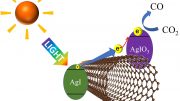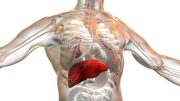
A study by the Barcelona Institute for Global Health (ISGlobal) has revealed that outbreaks of polycystic echinococcosis, a severe zoonotic disease, are influenced by regional climate changes in the Amazon. Credit: SciTechDaily.com
A study finds that polycystic echinococcosis, a neglected disease with a high mortality rate, is sensitive to climate, making it possible to predict potential infection hotspots.
Outbreaks of polycystic echinococcosis, a life-threatening zoonotic disease, are driven by regional climate changes, according to a study led by the Barcelona Institute for Global Health (ISGlobal), an institution supported by “la Caixa” Foundation. The findings, published in PNAS, provide evidence of the impact of climate on neglected tropical diseases in the Amazon region, with implications for other zoonoses.
Understanding Polycystic Echinococcosis
Polycystic echinococcosis (PE) is a neglected life-threatening zoonosis caused by an intestinal worm (Echinococcus vogeli) endemic in neotropical forests such as the Amazon. Although treatable, the disease can be fatal for about 1 in 3 infected people if not diagnosed in time. The parasite normally lives in animal reservoirs but can be transmitted to humans who handle infected animals, particularly pacas (a large rodent that is usually hunted for food).
“Polycystic echinococcosis is a good example of the many zoonotic diseases associated with the handling and consumption of wild meat,” says Xavier Rodó, ISGlobal researcher and last author of the study. “Understanding the role of climate in the emergence and spread of these zoonoses is becoming increasingly important, given the ongoing global warming scenario,” he adds.
Data-Driven Insights
In this study, Rodó and his team compiled two unique databases: one of PE infections in animals and humans covering the entire Amazon region (around 400 cases), and another one on hunting practices (containing almost 440,000 observations of animals hunted in 55 independent study areas in seven Amazonian countries and the French Guiana, over the last 55 years). This allowed the authors to understand the spatial distribution of PE, and to investigate how the disease is influenced by ecological, environmental and climatic factors, as well as hunting patterns. To do this, they developed two independent prediction models: one for animal infections (i.e. the sylvatic model) and one for human infections (i.e. the spillover model).
Climate Change and Zoonotic Disease Risks
The analysis shows that stable temperatures favor the sylvatic cycle (i.e. the circulation of the parasite in animal reservoirs), while extreme climate events (such as El Niño) disrupt hunting patterns and favor parasite spillover to humans. “This means that regional climate change due to global warming may indirectly drive disease outbreaks in humans,” says Adrià San José, first author of the study. This also means that information on land use and climate projections could be useful for early warning of potential PE hotspots.
These findings have clear implications for other similar hunting-related zoonoses. They also highlight the value of comprehensive databases for understanding the role of climate in the emergence and spread of zoonotic disease outbreaks.
Reference: “Climate determines transmission hotspots of Polycystic Echinococcosis, a life-threatening zoonotic disease, across Pan-Amazonia” by Adrià San-José, Pedro Mayor, Bruno Carvalho, Hani R. El Bizri, André Pinassi Antunes, Miguel Antunez Correa, Rolando Aquino, Richard E. Bodmer, Jean P. Boubli, Elildo A. R. Carvalho, João Vitor Campos-Silva, Pedro A. L. Constantino, Milton José de Paula, Arnauld L. J. Desbiez, Tula Fang, Luis A. Gómez-Puerta, Simon B. Knoop, Guillaume Longin, Thais Q. Morcatty, Louise Maranhão, Gabriel Favero Massocato, Daniel P. Munari, André Valle Nunes, Pablo Puertas, Marcela A. Oliveira, Juarez C. B. Pezzuti, Cécile Richard-Hansen, Geovanna Santos, João Valsecchi, Eduardo M. von Mühlen, John Bosmediano and Xavier Rodó, 7 August 2023, Proceedings of the National Academy of Sciences.
DOI: 10.1073/pnas.2302661120









Be the first to comment on "Climate Change as a Catalyst: Decoding the Spread of Deadly Zoonotic Disease in the Amazon"